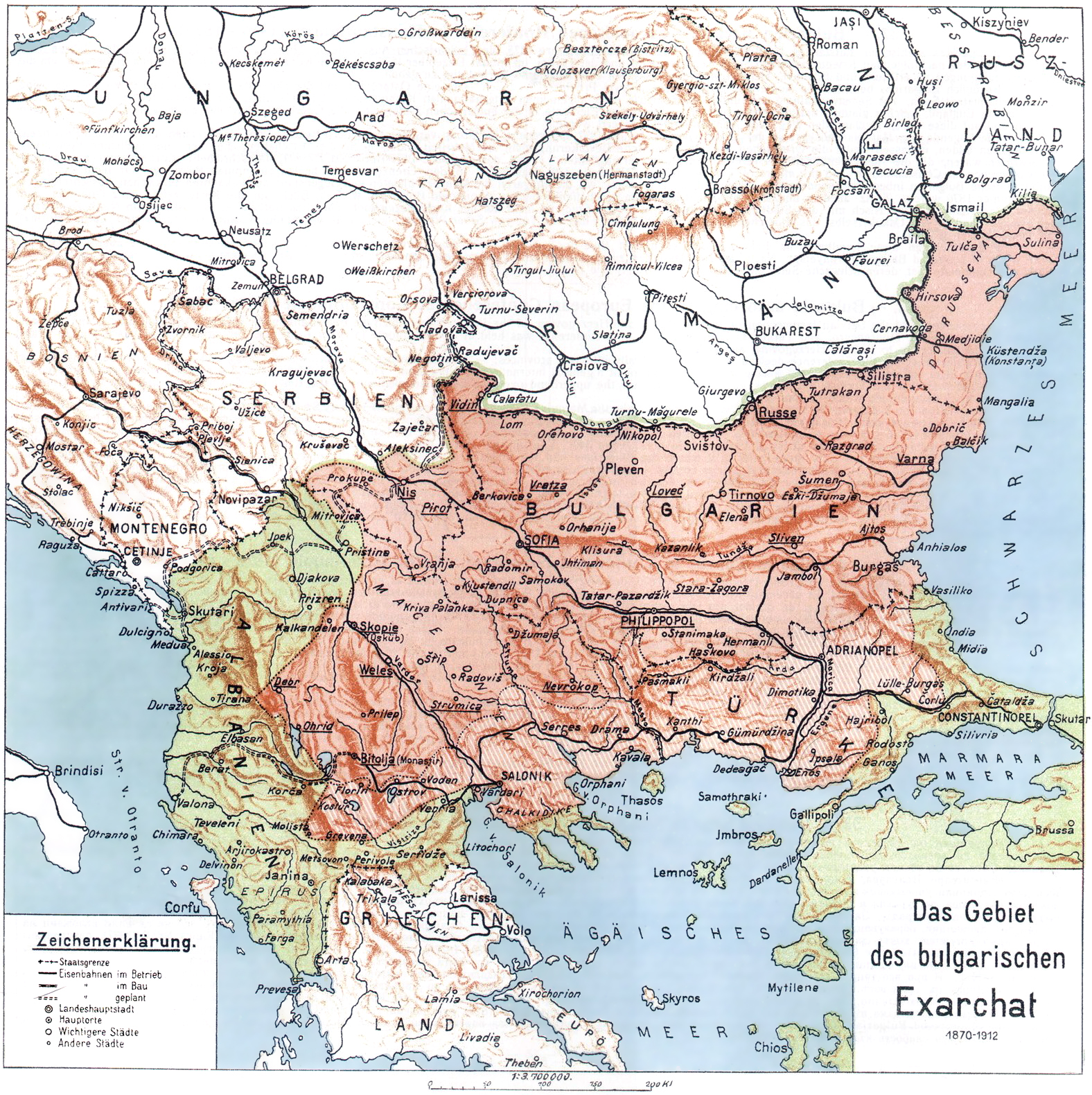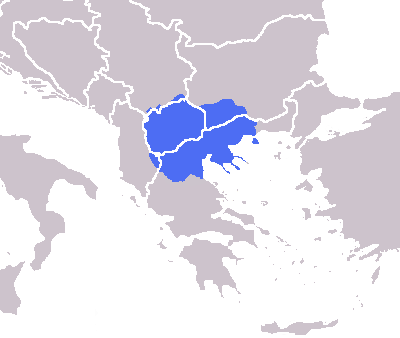|
MYSRO
The Macedonian Youth Secret Revolutionary Organization or MYSRO ( bg, Македонска младежка тайна революционна организация, mk, Македонска младинска тајна револуционерна организација), was the name of a secret pro-Bulgarian youth organization established by the Internal Macedonian Revolutionary Organization, active across the most regions of Macedonia between 1922 and 1941. The statue of MYSRO was approved personally from the leader of the Internal Macedonian Revolutionary Organization (IMRO), Todor Alexandrov. The aim of MYSRO was in concordance with the statue of IMRO – unification of all of Macedonia in an autonomous unit within Greater Bulgaria. It was established in 1921–1922 in Zagreb by students from Vardar Macedonia, it soon gained influence amongst Macedonian Bulgarian communities in Belgrade, Vienna, Graz, Prague, Ljubljana and other places where Macedonian students live ... [...More Info...] [...Related Items...] OR: [Wikipedia] [Google] [Baidu] |
Skopje Student Trial
The Skopje student trial began on December 5, 1927, in Skopje, then in the Kingdom of Yugoslavia. The trial was against activists of the Macedonian Youth Secret Revolutionary Organization. A total of 20 Macedonian Bulgarians, Macedonian Bulgarian students stood on the bench. They were accused of fighting for an Independent Macedonia (IMRO), Independent Macedonia. The government of the Kingdom then pursued a policy of Serbisation towards the Slavic population of the area, called "Southern Serbia". Before the trial the students were subjected to torture. Todor Popyodranov was summoned for questioning in person by police chief Zika Lazić. He was asked to hand over the names of other students from the organization and was released "to think." Popyordanov jumped under a train and committed suicide. On the trial Ante Pavelić then a lawyer and a member of the National Assembly, appeared. He presented to the court a telegraph sent to him by the relatives of some of the defendants asking h ... [...More Info...] [...Related Items...] OR: [Wikipedia] [Google] [Baidu] |
Internal Macedonian Revolutionary Organization
The Internal Macedonian Revolutionary Organization (IMRO; bg, Вътрешна Македонска Революционна Организация (ВМРО), translit=Vatrešna Makedonska Revoljucionna Organizacija (VMRO); mk, Внатрешна Македонска Револуционерна Организација, translit=Vnatrešna Makedonska Revolucionerna Organizacija), was a secret revolutionary society founded in the Ottoman territories in Europe, that operated in the late 19th and early 20th centuries. Founded in 1893 in Salonica, initially, it aimed to gain autonomy for Macedonia and Adrianople regions in the Ottoman Empire, however, later it became an agent serving Bulgarian interests in Balkan politics. IMRO group modeled itself after the Internal Revolutionary Organization of Vasil Levski and accepted its motto "Freedom or Death" (Свобода или смърть). Starting in 1896 it fought the Ottomans using guerrilla tactics, and in this they were ... [...More Info...] [...Related Items...] OR: [Wikipedia] [Google] [Baidu] |
Secret Society
A secret society is a club or an organization whose activities, events, inner functioning, or membership are concealed. The society may or may not attempt to conceal its existence. The term usually excludes covert groups, such as intelligence agencies or guerrilla warfare insurgencies, that hide their activities and memberships but maintain a public presence. Definitions The exact qualifications for labeling a group a secret society are disputed, but definitions generally rely on the degree to which the organization insists on secrecy, and might involve the retention and transmission of secret knowledge, the denial of membership or knowledge of the group, the creation of personal bonds between members of the organization, and the use of secret rites or rituals which solidify members of the group. Anthropologically and historically, secret societies have been deeply interlinked with the concept of the Männerbund, the all-male "warrior-band" or "warrior-society" of pre-modern ... [...More Info...] [...Related Items...] OR: [Wikipedia] [Google] [Baidu] |
Bulgarian Nationalism
Bulgarian irredentism is a term to identify the territory associated with a historical national state and a modern Bulgarian irredentist nationalist movement in the 19th and 20th centuries, which would include most of Macedonia, Thrace and Moesia. History The larger proposed Bulgarian state was suggested under the Treaty of San Stefano in 1878. The issue of irredentism and nationalism gained greater prominence after the Treaty of San Stefano. It established a Principality of Bulgaria, with territory including most of Moesia - the plain between the Danube and the Balkan mountains range (Stara Planina), the regions of Sofia, Pirot, and Vranje in the Morava Valley, Thrace - Northern Thrace, parts of Eastern Thrace, and nearly all of Macedonia. This treaty laid grounds for much of the later claims for a Greater Bulgaria. However, the Treaty of San Stefano was a preliminary one, and the borders of the newly created Bulgaria were established in the Treaty of Berlin. I ... [...More Info...] [...Related Items...] OR: [Wikipedia] [Google] [Baidu] |
Vardar Macedonia (1918–1941)
Vardar Macedonia ( Macedonian and sr, Вардарска Македонија, ''Vardarska Makedonija'') was the name given to the territory of the Kingdom of Serbia (1912–1918) and Kingdom of Yugoslavia (1918–1941) roughly corresponding to today's North Macedonia. It covers the northwestern part of geographical Macedonia, whose modern borders came to be defined by the mid-19th century. History Vardar Macedonia usually refers to the central part of the region of Macedonia attributed to the Kingdom of Serbia by the Treaty of Bucharest (1913) after the Balkan Wars. The territory is named after the Vardar, the major river that cuts across the region from northwest to southeast, to distinguish it from both Greek Macedonia and the region around the Pirin Mountain in Bulgaria. The region was initially known as ''Serbian Macedonia'' although the use of the name ''Macedonia'' was prohibited later in the Kingdom of Yugoslavia, due to the implemented policy of Serbianisation of t ... [...More Info...] [...Related Items...] OR: [Wikipedia] [Google] [Baidu] |
Defunct Organizations Based In Bulgaria
{{Disambiguation ...
Defunct (no longer in use or active) may refer to: * ''Defunct'' (video game), 2014 * Zombie process or defunct process, in Unix-like operating systems See also * * :Former entities * End-of-life product * Obsolescence Obsolescence is the state of being which occurs when an object, service, or practice is no longer maintained or required even though it may still be in good working order. It usually happens when something that is more efficient or less risky r ... [...More Info...] [...Related Items...] OR: [Wikipedia] [Google] [Baidu] |
Secret Societies In Bulgaria
Secrecy is the practice of hiding information from certain individuals or groups who do not have the "need to know", perhaps while sharing it with other individuals. That which is kept hidden is known as the secret. Secrecy is often controversial, depending on the content or nature of the secret, the group or people keeping the secret, and the motivation for secrecy. Secrecy by government entities is often decried as excessive or in promotion of poor operation; excessive revelation of information on individuals can conflict with virtues of privacy and confidentiality. It is often contrasted with social transparency. Secrecy can exist in a number of different ways: encoding or encryption (where mathematical and technical strategies are used to hide messages), true secrecy (where restrictions are put upon those who take part of the message, such as through government security classification) and obfuscation, where secrets are hidden in plain sight behind complex idiosyncra ... [...More Info...] [...Related Items...] OR: [Wikipedia] [Google] [Baidu] |
Youth Organizations Established In 1921
Youth is the time of life when one is young. The word, youth, can also mean the time between childhood and adulthood ( maturity), but it can also refer to one's peak, in terms of health or the period of life known as being a young adult. Youth is also defined as "the appearance, freshness, vigor, spirit, etc., characteristic of one, who is young". Its definitions of a specific age range varies, as youth is not defined chronologically as a stage that can be tied to specific age ranges; nor can its end point be linked to specific activities, such as taking unpaid work, or having sexual relations. Youth is an experience that may shape an individual's level of dependency, which can be marked in various ways according to different cultural perspectives. Personal experience is marked by an individual's cultural norms or traditions, while a youth's level of dependency means the extent to which they still rely on their family emotionally and economically. Terminology and definit ... [...More Info...] [...Related Items...] OR: [Wikipedia] [Google] [Baidu] |
Yugoslav Macedonia
The Socialist Republic of Macedonia ( mk, Социјалистичка Република Македонија, Socijalistička Republika Makedonija), or SR Macedonia, commonly referred to as Socialist Macedonia or Yugoslav Macedonia, was one of the six constituent republics of the post-World War II Socialist Federal Republic of Yugoslavia, and a nation state of the Macedonians. After the transition of the political system to parliamentary democracy in 1990, the Republic changed its official name to Republic of Macedonia in 1991,''On This Day'' – Macedonian Information Agency – MIA , see: 1991 and with the beginning of the |
Modern History Of Macedonia (region)
Modern may refer to: History * Modern history ** Early Modern period ** Late Modern period *** 18th century *** 19th century *** 20th century ** Contemporary history * Moderns, a faction of Freemasonry that existed in the 18th century Philosophy and sociology * Modernity, a loosely defined concept delineating a number of societal, economic and ideological features that contrast with "pre-modern" times or societies ** Late modernity Art * Modernism ** Modernist poetry * Modern art, a form of art * Modern dance, a dance form developed in the early 20th century * Modern architecture, a broad movement and period in architectural history * Modern music (other) Geography *Modra, a Slovak city, referred to in the German language as "Modern" Typography * Modern (typeface), a raster font packaged with Windows XP * Another name for the typeface classification known as Didone (typography) * Modern, a generic font family name for fixed-pitch serif and sans serif fonts ( ... [...More Info...] [...Related Items...] OR: [Wikipedia] [Google] [Baidu] |
Political History Of Bulgaria
Politics (from , ) is the set of activities that are associated with making decisions in groups, or other forms of power relations among individuals, such as the distribution of resources or status. The branch of social science that studies politics and government is referred to as political science. It may be used positively in the context of a "political solution" which is compromising and nonviolent, or descriptively as "the art or science of government", but also often carries a negative connotation.. The concept has been defined in various ways, and different approaches have fundamentally differing views on whether it should be used extensively or limitedly, empirically or normatively, and on whether conflict or co-operation is more essential to it. A variety of methods are deployed in politics, which include promoting one's own political views among people, negotiation with other political subjects, making laws, and exercising internal and external force, including wa ... [...More Info...] [...Related Items...] OR: [Wikipedia] [Google] [Baidu] |






